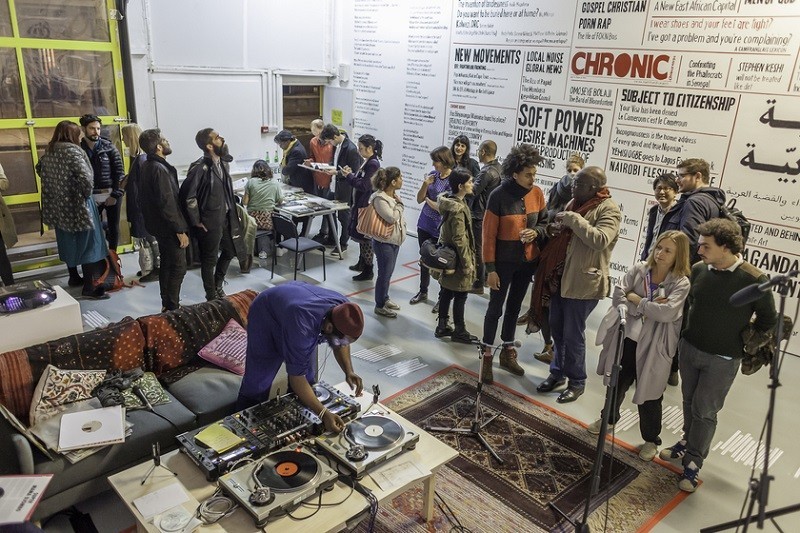Chimurenga
From July to September, we welcomed the Chimurenga team to our Kër Issa residency space, where they have spent the past few months delving into Ousmane Sembène’s unfinished film L’Almamy Samori Touré. Since completing his cinema studies in Moscow in 1962, Sembène had been
developing a project on Samori Touré, founder of the West African Wassoulou Empire (stretching from Guinea to Ghana via Mali, Sierra Leone, Liberia, Burkina Faso, and Côte d’Ivoire) and a central figure in the resistance to French and British colonization in the 19th century. In this process, Sembène created a three volume script, dated 1962-1985, documenting his ambitions for this project.
Through the lens of this film, Chimurenga raises a broader question: what might we uncover when we read the unfinished or unachieved as repositories of African artistic, cultural, social and political imagination and histories? They approach L’Almamy Samori Touré not only as a film but also as a library of the (im)possibility of African cinema and Pan Africanism.
This research unfolded across multiple locations, intentionally mirroring the footsteps of Ousmane Sembène and Samori Toure as a way of journeying alongside them and adding to this ever evolving library.
**
Chimurenga, a pan African platform of writing, art and politics founded by Ntone Edjabe in 2002. Drawing together a myriad voices from across Africa and the diaspora, Chimurenga takes many forms operating as an innovative platform for free ideas and political reflection about Africa by Africans.
Outputs include a journal of culture, art and politics of the same name (Chimurenga Magazine); a quarterly broadsheet called The Chronic; the Chimurenga Library – an ongoing invention into knowledge production and the archive that seeks to re-imagine the library; the African Cities Reader – a biennial publication of urban life, Africa-style; and the Pan African Space Station (PASS) – an online radio station and pop-up studio.
The aim of these activities is not just to produce new knowledge, but rather to express the intensities of our world, to capture those forces and to take action. This has required a stretching of the boundaries, for unless we push form and content beyond what exists, then we merely reproduce the original form – the colonized form, if you will. It requires not only a new set of questions, but its own set of tools; new practices and methodologies that allow us to engage the lines of flight, of fragility, the precariousness, as well as joy, creativity and beauty that defines contemporary African life.
As Fela puts it, simply: who no know go know.
